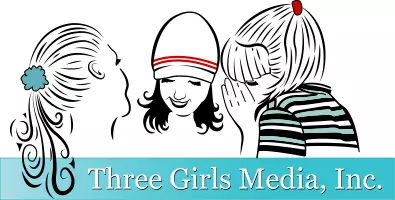Facebook made huge waves over the course of the New Year when it finally admitted to marketers’ worst fears: they were actively skewing a Facebook page’s reach so that free pages were seen by fewer eyes than the pages that engaged in paid marketing.
Or, in non-marketing speak: if you want everybody who has “liked” your Facebook page to actually see the things you’re posting, you have to pay Facebook for that privilege. It doesn’t matter that each of those “likes” represents a person who has opted in to your audience of their own free will. It doesn’t matter that each of those “likes” represents someone who has asked Facebook for permission to see what you say. What matters is that Facebook wants your money. And if you don’t pay up, you’re lucky if your page’s posts are seen by 7% of your audience—at best.
Gross, right?
So what do you do? You know that you need to have a Facebook presence if you want to really build your business. Social media is the first place people go when they need referrals for products or services.
And right there is the most important part of what you need to understand about social media marketing: Facebook is important but it isn’t all there is to social media.
These days there are social media sites for every niche. The “big kids” like Facebook and Twitter aren’t the only players on the field anymore. Networks like LinkedIn and Pinterest are gaining quickly. Google has even been trying to yank the rug out from under Facebook completely with its eerily similar Google+ system (although it’s worth noting that not everybody is thrilled about Google+’s integration with YouTube and other systems).
So how do you use these systems? More importantly, how do you get these systems to work for you?
We’re starting here because it’s important and there are ways to circumvent their gross “pay to play” system. You just have to be creative.
The best way to use Facebook these days is to have conversations with your followers. You want people to visit your Facebook page on purpose instead of hoping that your messages actually show up in a fan’s feed. Let’s look at a real world example of this.
When you look at the Matomy Facebook page, you can quickly see, via their recent updates, that the company does very little actual selling via the Facebook system. They are using Facebook socially—posting photos of recent program graduates, talking about news from the social marketing world, etc. When it comes to performance marketing tips, this one stretches across the Internet: showing people your human face is the best thing you can do. Matomy is letting fans see the people behind the branding. This is a technique that works no matter what social media outlet you are using.
It’s easy to dismiss Pinterest as a place that is just for weddings, recipes and exercise tips; the reality is that Pinterest is growing every day and even corporate brands should be using the system to help promote themselves. There are three basic boards that every business needs to have on Pinterest:
- A board on which you “pin” the content you create and put online about your company
- A board on which you “pin” the content others create about your company (positive and negative)
- A board on which you “pin” your products, services and promotions
Pinterest is one of the few systems in which blatant promotion is okay and doesn’t devalue the conversation. Why? Because Pinterest isn’t about the conversation, it’s about the thing. Use that to your advantage.
Google+
Social Media Today published a great article last summer called “10 Tips: How Not to Use Google+.” Among the standard, “don’t spam, don’t stuff keywords, etc.” advice that is given for all social media portals, the article insists that ignoring negative comments is a bad way to go.
We agree!
Google+ makes it possible for you to email other Google+ users privately even if you don’t know their email addresses (as you can guess, this caused quite a privacy stir). When someone leaves a negative comment, thank that person publicly on your post and then use the opportunity to make a personal connection with that person. Email them and thank them again for the comment and then, ask them if you can talk further with them about their issues (be polite about this). If that person says yes, then– in the most positive way possible, ask what you can do to help them feel more positively about your products or services. Apologize if your customer service was lacking, offer coupon codes, etc. If a specific complaint is lodged about a flaw in your product, look at fixing the flaw.
If you are positive and professional, the message should be well received and it could even lead to that person leaving a positive comment about you in the future.
These are just three of the big social media portals that you should consider using to promote your business. Make sure that these aren’t, however, the only social media portals you’re thinking about to promote your business. You should also consider Twitter, Foursquare, LinkedIn, Yelp, Angie’s List, etc. These here are big and important, but they are just the tip of the iceberg—especially if you really are adamant about getting away from Facebook.
Special Offer: Complimentary Consultation
Three Girls Media, Inc. is a public relations and social media management agency founded in the heart of California’s Silicon Valley with a team in the Seattle area. We love working with small and emerging companies across the nation to raise their brand awareness and name recognition. We offer a complimentary 30-minute phone consultation with our CEO and can answer your questions and discuss your specific marketing needs.
Call 408-218-2391 or Contact us today to arrange yours!
Photo Credit: mindfreeze86

